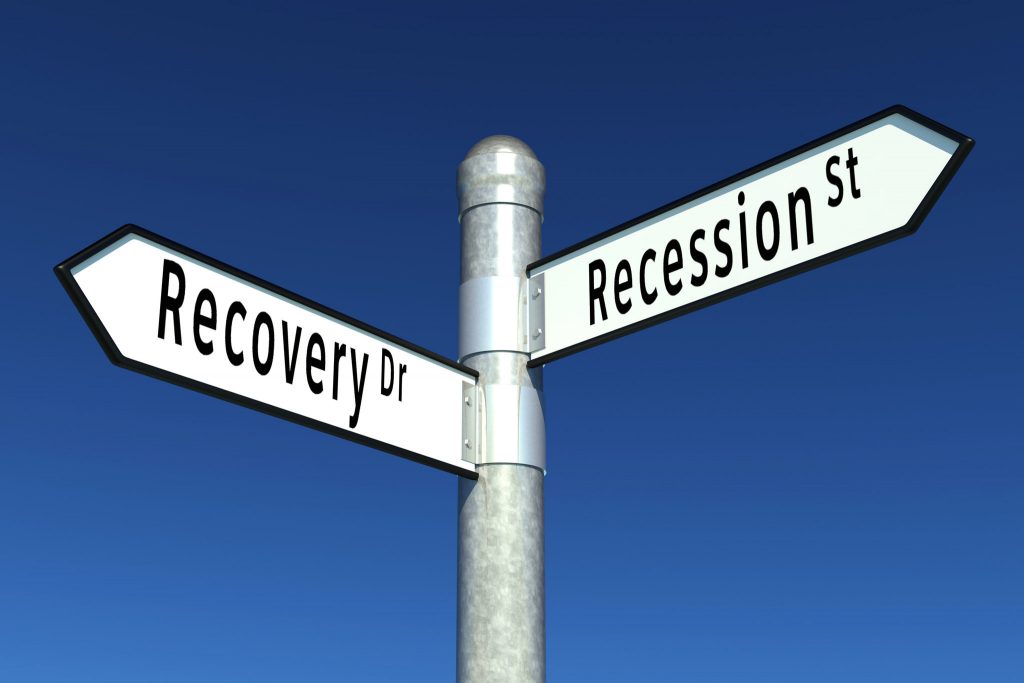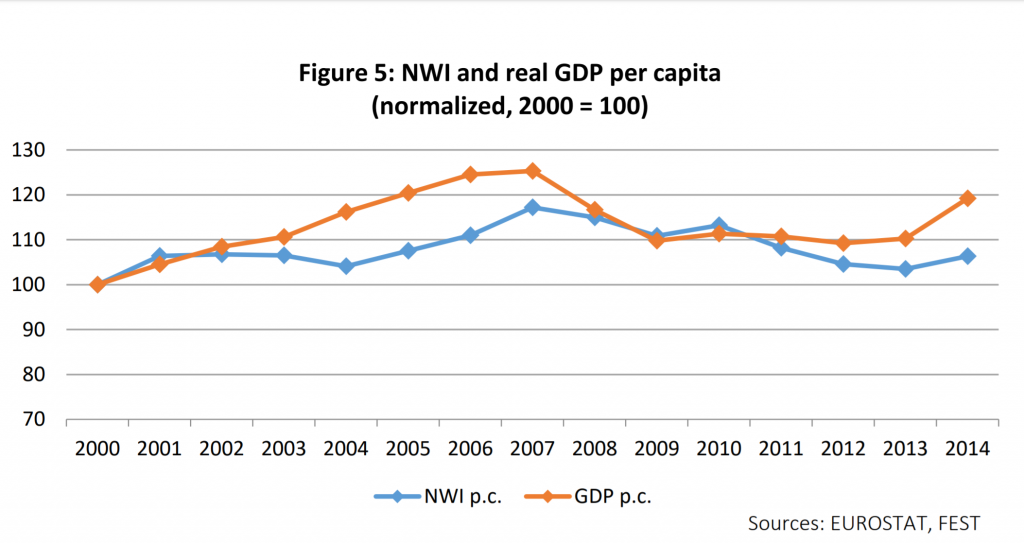Growth and degrowth: unpacking the myths

August 21, 2019
In an oddly-phrased opinion piece in The Irish Times last Friday, business journalist Mark Paul criticised those who argue that economic contraction – degrowth – will bring about a happier society. He described them as “fetishists” whose proposals would in fact cause severe suffering.
The author believes that green growth – expanding the economy while avoiding environmental damage – is “a fallacy, the biggest attempt to have cake and eat it in history”. But he suggests that green growth may not be necessary anyway, as environmental degradation may actually turn out to be a less serious problem than feared. Catastrophic climate change, as the article puts it, is “only a risk, not a certainty”.
At the same time, the article finds that there is absolute, rock-hard evidence that degrowth will always make people “poorer, sadder and less healthy.” This, the author states, “is incontrovertible fact”.
Accordingly, Paul seems annoyed by “on-message” politicians and “woke” young people who claim that degrowth could be a positive thing: “If you are going to champion degrowth, shouldn’t you look people in the eye and tell them what it really means?”
He is most likely correct to have concerns about degrowth’s potential negative effects. As with climate disruption, it’s clear that economic contraction (or degrowth, or recession, if you prefer) can present significant threats to the current economic system.
However, to borrow a phrase, these threats are risks, not certainties. Yes, recessions have not been happy times, historically. But Paul is wrong to assume that an economic contraction will inevitably be highly socially damaging, with no chance whatsoever of any silver lining in its effects on our wellbeing.
And his error is quite a troubling one, as it could contribute to misunderstandings and even panic, thus helping to bring about the very suffering that he’s worried about. Combine it with his downplaying of the risks presented by climate disruption and his stance becomes downright dangerous.

Mitigating the risks associated with recessions
There is considerable research currently underway that investigates the exact relationship between growth and wellbeing, identifying steps that could help lessen the challenge and stress of dealing with recessions.
While the data cited in The Irish Times piece on the effects of recession is certainly a matter of concern, other research paints a more nuanced picture. For example, Feasta’s ‘Measuring Wellbeing’, in collaboration with the German research institute FEST, published a study in 2017 that used 20 different measures to formulate a well-being index for Ireland.
Consumption, housework, voluntary work and healthcare and education expenditure are among the positive factors considered in the index, while negative ones include crime rates, inequality, commuting time and several forms of environmental degradation.
As the chart below shows, this Well-Being Index (NWI) had a slump in 2004, at a time of economic boom that was as bad as the worst slump during the recession in 2013. Neither of these slumps, however, was particularly catastrophic.
Even taking into account the NWI’s inherent limitations – discussed in a recent Feasta podcast – it seems clear that the relationship between growth and wellbeing is a highly complex one.
Yet, by arguing that GDP and wellbeing (or progress) does not directly correlate, this is not to dismiss the risks presented by recession. They do exist. Moreover, we may well need to deal with a far deeper and more permanent economic contraction in the future than the 2008 one, and so those risks will be amplified.
Feasta research has shown that certain ‘upstream’ measures could significantly help to increase Irish society’s resilience during degrowth. These measures include financial system reform, the introduction of a basic income and a shift in taxation away from labour toward any income that owes its existence to the use of a common good such as the use of the atmosphere as a carbon dump, land value and financial speculation.
Such measures need to take into account the huge variation in responsibility for emissions in society, and the equally huge variation in the effects of degrowth on different segments of the population. For example, in both the US and UK, the top 10 per cent of the population produce at least five times the emissions of the lowest 50 per cent.
These are the people with high discretionary income, in contrast to those on the lower end who may well be in a vulnerable financial state already. So, exactly whose portion of the economy needs to contract the most? The answer seems pretty clear.

Degrowth has chosen us
A final, but extremely important, point about degrowth – which The Irish Times piece failed to mention – is that degrowth is going to happen, no matter what we do. This is because of the close correlation between fossil fuel use and economic growth.
It is well known that easily-accessible oil is running out and that unconventional oil and gas production is both highly polluting and inefficient in terms of the net energy it provides. Here we really are talking about laws of physics rather than social science data.
Even if we completely ignore climate breakdown, degrowth will still be a reality we need to face. Indeed, it could well come upon us extremely quickly. Renewables simply can’t replicate the dazzling efficiency of traditional fossil fuels overnight.
So it’s not a matter of choosing whether or not to become a ‘degrowth fan’ or to ‘champion’ it. Degrowth has chosen us, not the other way round. Right now, we may still have a bit of wiggle room in terms of exactly what kind of degrowth there will be (while we can’t even be certain even of that, we owe it to younger generations to do the very best we can).
The sobering fact is that if time continues to go by without taking measures to mitigate the significant risks that degrowth presents, our choices will become more and more constrained and the likelihood of a catastrophic economic crash will become greater and greater.
And one thing is clear: playing down the environmental risks we’re facing, while distorting the research into the effects of recession, doesn’t help to move the debate along.
By Caroline Whyte
Caroline is the research and communications officer with Feasta – the Foundation for the Economics of Sustainability, founded in 1998 to explore the economic, cultural and environmental characteristics of a sustainable society.







